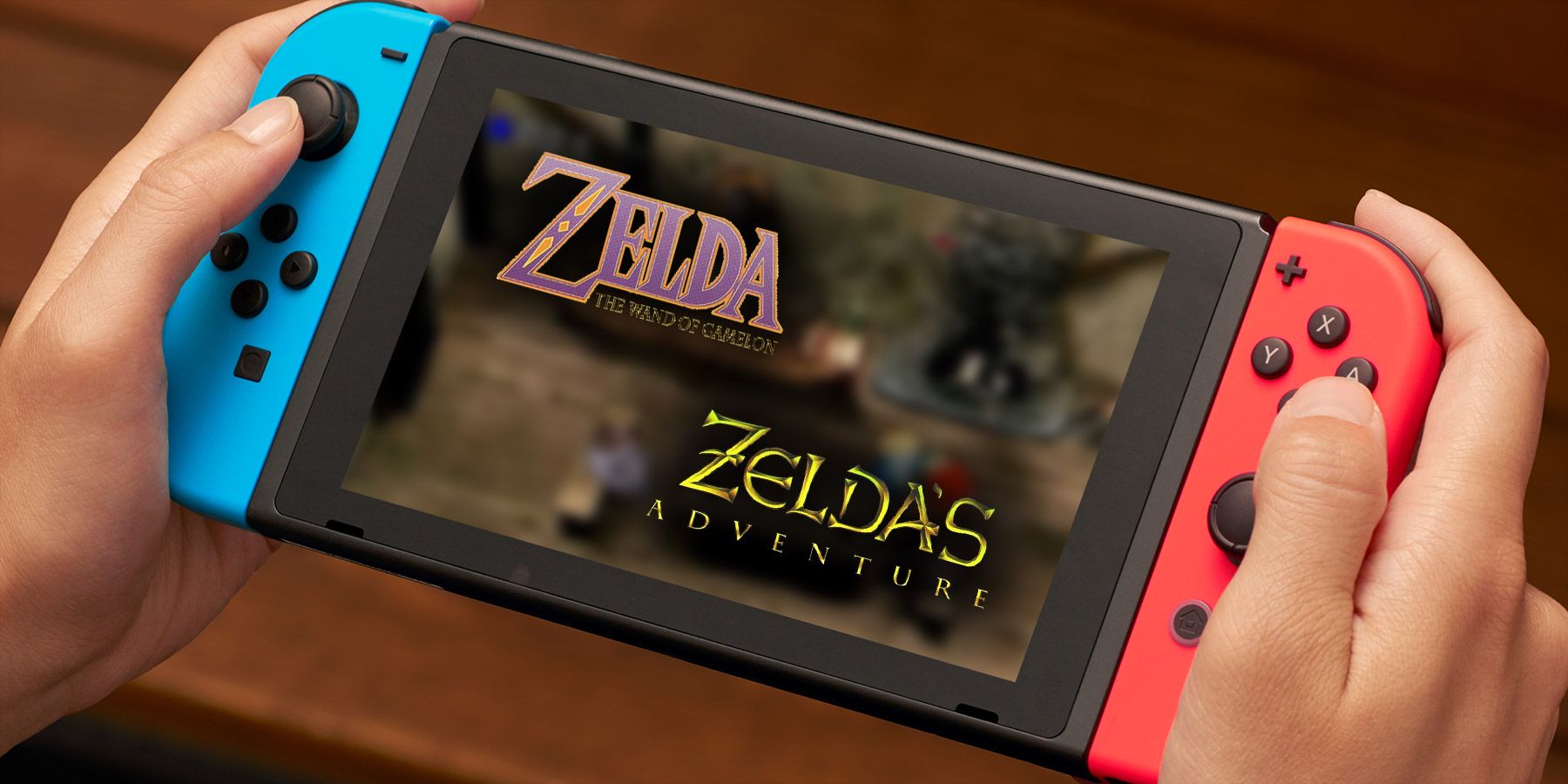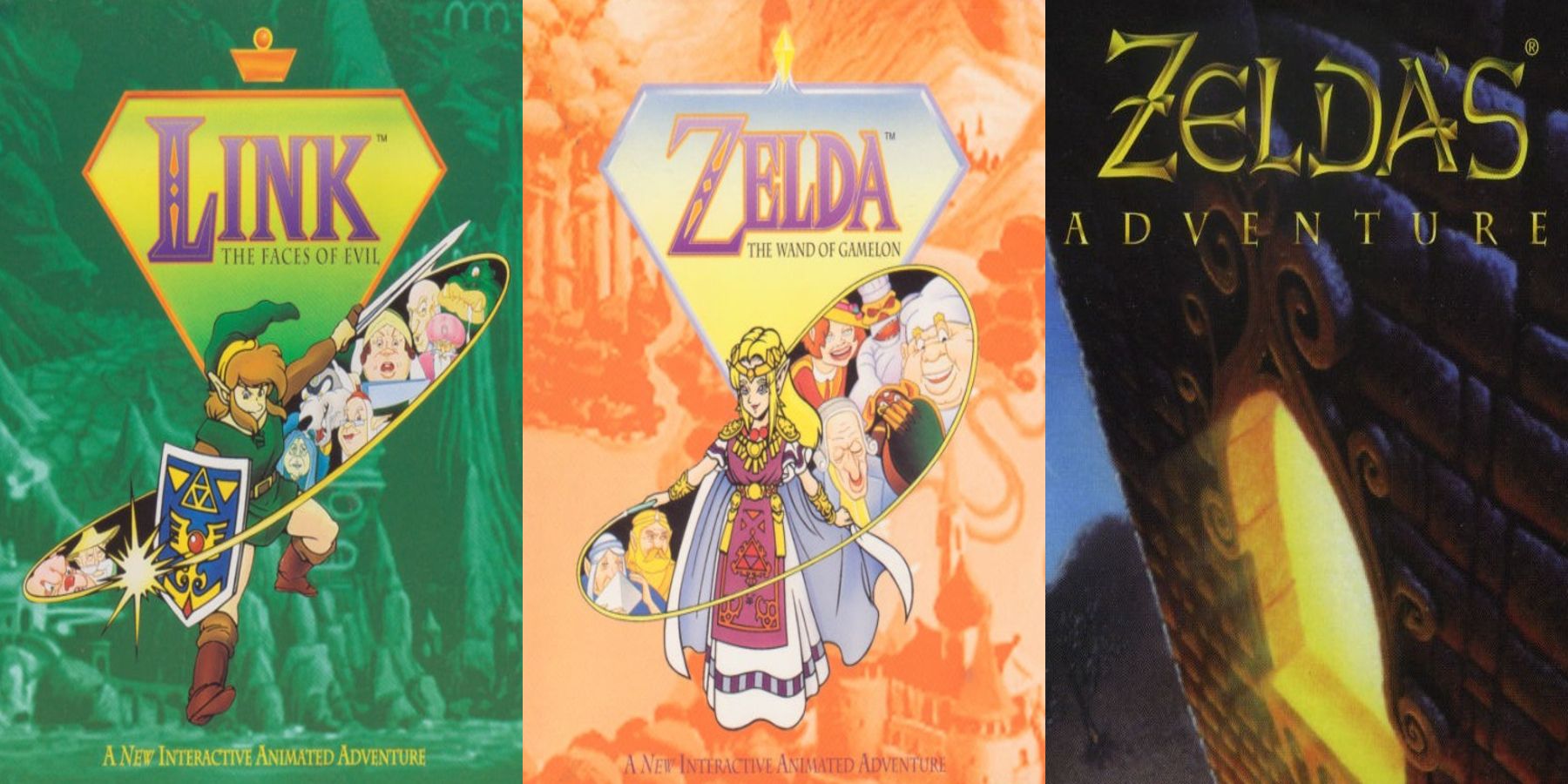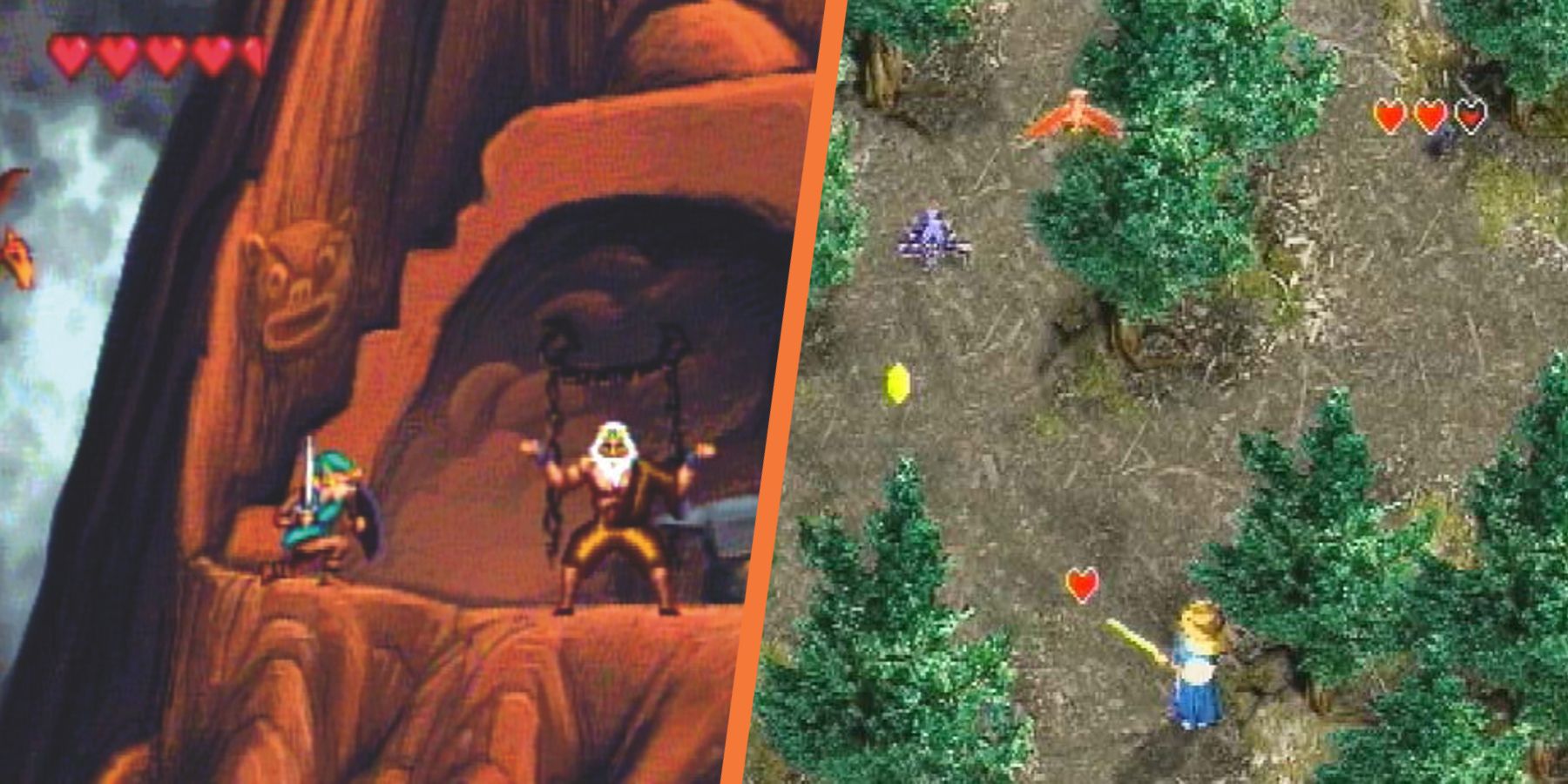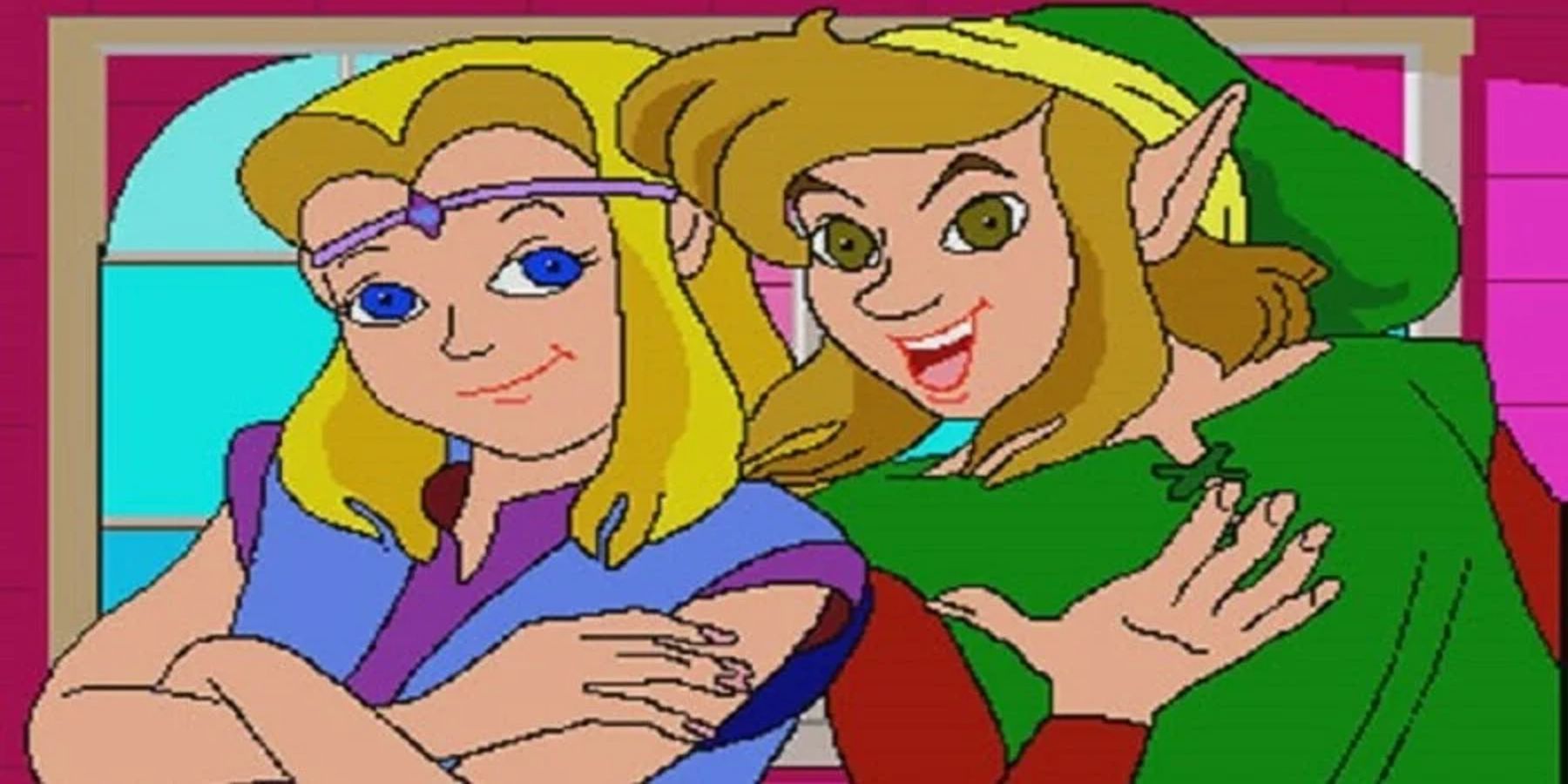Though Nintendo celebrates much of The Legend of Zelda's history, it has done its best to avoid addressing its infamous Philips CD-i games, except the obvious solution to finally absolve itself of this disrepute is to finally remake these games. While some The Legend of Zelda games remain more popular and prominent than others, with leading examples being the Ocarina of Time or A Link to the Past, Nintendo has always shown appreciation for its more eclectic entries such as its Oracle duology or The Adventures of Link. But the three games released exclusively to the CD-i have been unceremoniously brushed under the rug.
Despite trying to turn a blind eye to this part of the Zelda series, both the fan community and third-party developers remain not just aware but actively interested in these CD-i games. Even the latest Hyrule Warriors: Age of Calamity references one of the Zelda CD-i's characters proving that decades later these games continue to hold a place within the Zelda community that perhaps Nintendo wished it didn't. Trying to avoid these games only brings attention to them more, so Nintendo's only real solution is to lean into these titles and remake them to patch up Zelda's ever-evolving legacy.
Exploring the History of Zelda CD-i Games
The history of Nintendo's and Philips' relationship with the CD-i is a contentious one, something that incidentally resulted in Sony developing the PlayStation as it distanced itself from Nintendo. To make a long story short, when Nintendo dissolved its partnership with Philips, it agreed to license the use of Link, Zelda, and Ganon for the CD-i. This could explain why two of these games use Princess Zelda as a protagonist instead of Link, and why all three games seem to have very little in common with the broader Zelda series beyond familiar characters like Impa or a stand-in for King Rhoam called "Harkinian."
Due to this agreement, Nintendo had no input on these games, leading Philips to contract independent studios Animation Magic and Viridis Corporation to make them. Philips insisted these developers utilize the capacity of the CD-i such as its FMV, but since the system was not developed with gaming in mind resulting in lagging controls or technical issues with audio, memory, and disk access. The resulting games are therefore both weird interpretations of the Zelda series and are uniquely difficult and frustrating games to play.
The most well-known Zelda CD-i games are Zelda: The Wand of Gamelon and Link: Faces of Evil, thanks in part to their heavily memed animated cutscenes. Both were developed by Animation Magic, which explains why they look and play similarly, and were the first to release to the CD-i at the same time. The third lesser-known game, simply titled Zelda's Adventure, was made by Viridis Corporation and is considered the worst due to its unpolished gameplay. Its release after Animation Magic's games and underdeveloped state could speak to Philips' market troubles and the CD-i's decline.
How to Remake Zelda CD-i Games
With three games to address, it would be ambitious for Nintendo to create individual remakes when so much work would be needed for these, especially since Zelda's Adventure needs such a big overhaul. A simpler approach would be to unpack what each game tried to deliver, including the plot points and characters that are worth salvaging, and create a hybridized game that incorporates all three. Since The Wand of Gamelon and The Faces of Evil have the most in common, it would make more sense to use these as the groundwork for the remake and bring in Zelda's Adventure wherever possible.
However, though the story could be reshaped to fit the Zelda canon, the biggest hurdle lies in its gameplay. Animation Magic's games took a 2D approach akin to The Adventures of Link, but most if not all Zelda games since then have been played from a third-person perspective, either over-the-shoulder or top-down. Zelda's Adventure is the closest in format to modern Zelda, but its imperfect gameplay isn't a good basis to work from. Nintendo should instead follow the likes of Link's Awakening remake for the Switch, with a Zelda CD-i remake equally starting largely from scratch.
Why Should Nintendo Remake the Zelda CD-i Games?
Ultimately, as much as fans might speculate on how these CD-i games might be revived, the bigger question is why would Nintendo bother. So far, its current approach has just been to ignore these games and not draw attention to them, but this isn't a sentiment shared by fans. Some have even gone as far as working on their own fan-developed remake of Zelda CD-i games, focusing on The Wand of Gamelon and The Faces of Evil, demonstrating that the games aren't going anywhere despite Nintendo's best efforts otherwise.
Nintendo shares the broader gaming industry's penchant for developing remakes of fan-favorite or cult classic games. It has been no exception to this trend with calls for future Zelda remakes from The Legend of Zelda: The Minish Cap to The Adventures of Link. But with the list of possible candidates for remakes growing ever shorter, Nintendo could instead focus on the Zelda CD-i games. While these games are classed as spin-offs, opting to remake these before others like The Minish Cap could help Nintendo's long-term plans for Zelda with short-term CD-i remakes.
Rather than try to dismiss part of Zelda's history and resist its fans, Nintendo could capitalize on the nostalgic and ironic interest in these CD-i games and turn past Zelda failures into a modern success. Much of what draws players into these games is not only the unusual story behind their development but also their absurd cutscenes, goofy characters, and frustratingly obtuse controls. While some of this may be sacrificed to improve the remake's playability, paying homage to these games and giving them their dues could be a love letter to fans that finally closes the chapter on The Legend of Zelda's CD-i era.




